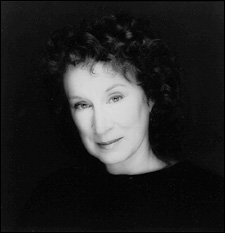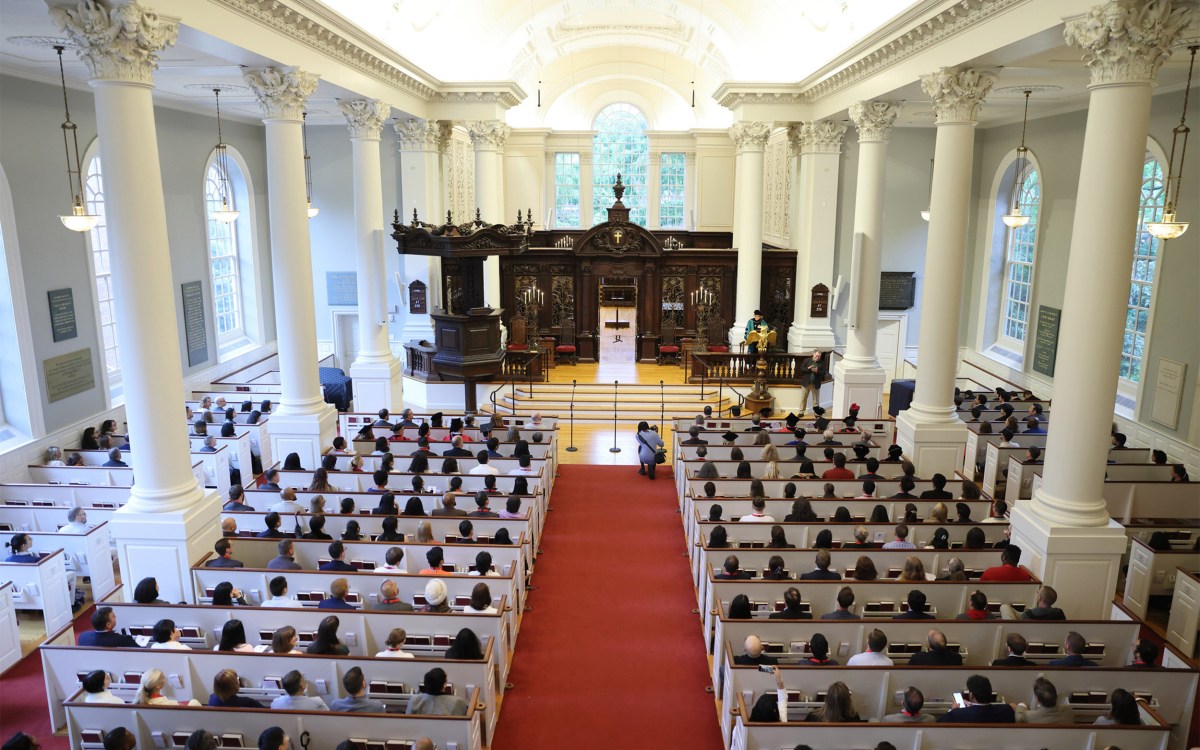2003 Radcliffe Medal to be awarded to Margaret Atwood:
Writer to be honored June 6 at Radcliffe Association Luncheon

Margaret Atwood ’62, Canadian novelist, poet, and critic, will receive the 2003 Radcliffe Medal on Friday, June 6, at the Radcliffe Institute for Advanced Study at the yearly Radcliffe Association luncheon.
The medal is awarded annually during Harvard Commencement/Reunion Week by the Radcliffe Association to an individual whose life and work has had a significant impact on society. Past honorees include Madeleine Albright, Elizabeth Dole, Billie Jean King, Janet Reno, and Katharine Graham, among others.
“I am very honored to receive this medal from Radcliffe, an institution that continues to inspire and empower women in all disciplines and in all professions,” said Atwood, who often addresses gender and politics in her texts. Noted for their feminist and mythological themes, Atwood’s novels tend to revolve around a female protagonist, an “everywoman,” and combine vision and social realism, myth and satire, poetry and parody.
The author of more than 30 books of fiction, poetry, and critical essays, Atwood has earned dozens of awards and numerous honorary degrees, and her work has been published in more than 30 languages. She is best-known for her novels, which include “Oryx and Crake” (Doubleday, 2003); “The Blind Assassin” (Doubleday, 2000), which won the Booker Prize in 2000 and was named Time magazine’s Book of the Year; “Alias Grace” (Doubleday, 1996), which won the Giller Prize in 1996; “The Robber Bride” (Doubleday, 1993); “The Handmaid’s Tale” (Houghton Mifflin, 1985), which was made into a motion picture in 1990 and adapted for the screen by Harold Pinter; and “Surfacing” (Simon & Schuster, 1973), her classic feminist novel.
Atwood also has written children’s books, television and radio scripts, and nonfiction works, including “Negotiating With the Dead: A Writer on Writing” (Cambridge University Press, 2002), “Strange Things: The Malevolent North in Canadian Literature” (Oxford University Press, 1995), and “Survival: A Thematic Guide to Canadian Literature” (Anansi, 1972).
Her literary talents have been acknowledged internationally with a Graduate Society Medal from Radcliffe, a Guggenheim Fellowship, a Centennial Medal from Harvard, the Order of Ontario and the Government of France’s Chevalier dans l’Ordre des Arts et des Lettres.
Born in Ottawa, Canada, Atwood spent her early years in northern Quebec. She earned an undergraduate degree from Victoria College at the University of Toronto in 1961 and a master’s degree from Radcliffe College in 1962. She served as president of the Writers’ Union of Canada and president of International PEN, Canadian Centre (English Speaking). Earlier in her career, Atwood taught English at several Canadian universities and served as a writer-in-residence at universities in Australia, Canada, and the United States.
Atwood, who lives in Toronto with novelist Graeme Gibson, came to the Radcliffe Institute in 2001 as part of the Dean’s Lecture Series. She offered this advice to writers: “I wish you good writing and good luck. Even if you’ve already done the good writing, you’ll still need the good luck. It’s a shark-filled lagoon out there. Cross your fingers and watch your back.”




